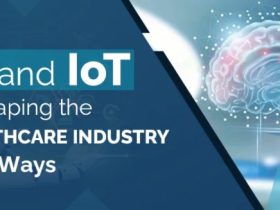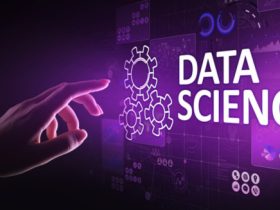Top Emerging technologies in 2025 to Watch
Technology continues to evolve at an unprecedented pace. Each passing year brings innovations that not only enhance existing systems but also completely transform the way we live and work. As we step further into 2025, the rate of change is no longer just rapid — it’s exponential. Emerging technologies are converging to create new possibilities and business opportunities across every sector.
In recent years, innovations such as blockchain, AI, quantum computing, and augmented analytics have started reshaping industries. As identified by experts and thought leaders — including Gartner — these technologies will continue to drive disruption and foster new business models in 2025.
Let’s explore the top technology trends to watch this year:
Autonomous Systems Are Going Mainstream
From self-driving cars and drones to agricultural robots, autonomous systems are no longer futuristic concepts. In 2025, these systems leverage advanced AI, edge computing, and real-time analytics to perform tasks that were traditionally handled by humans — with greater precision and autonomy.
The ecosystem around autonomous things continues to mature, including:
- Delivery robots
- Warehouse automation
- Self-flying drones
- Smart farming bots
Expect these innovations to become more integrated into everyday life, especially in logistics, healthcare, and agriculture.
AI-Driven Development Becomes Standard
AI is no longer just a tool — it’s now part of the software development process itself. In 2025, we’re witnessing the rise of AI-generated code, intelligent testing, and AI-augmented development environments.
Notable trends include:
- AI-powered IDEs (Integrated Development Environments)
- AutoML (Automated Machine Learning)
- AI code assistants like GitHub Copilot
This evolution is reducing development cycles, minimizing errors, and enabling even non-developers to build functional applications through low-code and no-code platforms.
Augmented Analytics Everywhere
In 2025, data is still king — but now everyone can be a data scientist. Augmented analytics tools, embedded directly into business platforms, empower users across departments to gain actionable insights without needing deep technical expertise.
This democratization of data enables:
- Smart HR dashboards
- Predictive sales tools
- Automated marketing insights
- Real-time customer behavior analytics
Companies that embrace this trend will be faster, more responsive, and far more data-driven.
Edge Computing Takes Center Stage
Edge computing is no longer just about IoT. In 2025, the edge is where real-time data processing happens — closer to the source and end-users — reducing latency, saving bandwidth, and enabling faster decision-making.
Key developments include:
- AI at the edge for faster inference
- Smart factories and industrial IoT (IIoT)
- Edge security and device orchestration
This is especially crucial for smart cities, connected vehicles, and remote healthcare applications.
Digital Twins Evolve Beyond Assets
Digital twins — virtual replicas of physical objects or systems — are now being applied to entire business operations, not just machinery.
In 2025, we’re seeing:
- Digital twins of factories, cities, and supply chains
- Simulation-driven decision-making
- Predictive maintenance through sensor data
The growing number of connected devices (now exceeding 30 billion globally) makes digital twins a powerful tool for optimization, planning, and sustainability.
Immersive Technologies Redefine Experience
The era of AR, VR, and MR has matured into a broader class of immersive experiences. These are now multi-sensory, context-aware, and deeply integrated into daily tasks.
In 2025, immersive tech powers:
- Virtual office spaces and remote collaboration
- Mixed-reality training environments
- AR-driven shopping and customer service
Immersive experiences are no longer confined to headsets — they’re embedded in wearables, smart vehicles, and even home appliances.
Blockchain Finds Practical, Scalable Use Cases
Blockchain in 2025 has moved past hype into real-world enterprise adoption. While still used in finance, it’s now common in:
- Supply chain tracking
- Digital identity
- Healthcare data exchange
- Smart contracts for business automation
With the rise of Web3 and decentralized applications (dApps), blockchain continues to enable secure, transparent, and frictionless interactions — without needing intermediaries.
Smart Spaces Get Smarter
A smart space is any environment — physical or digital — where humans and systems interact in an intelligent and adaptive way. In 2025, these are no longer futuristic concepts.
Smart homes, offices, factories, and cities now feature:
- AI-powered sensors and automation
- Context-aware lighting, HVAC, and security
- Integrated IoT devices for seamless experiences
As 5G and Wi-Fi 7 expand connectivity, smart spaces are becoming fully integrated ecosystems, not just isolated tech islands.
Digital Ethics and Privacy Take the Spotlight
With the rise of AI and data-centric technologies, trust and ethics are more critical than ever in 2025. Regulatory frameworks such as GDPR, CCPA, and India’s DPDP Act are evolving, and companies must build privacy-first systems.
To stay ahead, businesses need to:
- Ensure ethical AI and algorithmic transparency
- Practice responsible data governance
- Prioritize digital consent and user control
Customer trust is now a key competitive differentiator.
Quantum Computing Progresses Steadily
Quantum computing is still in its early stages, but 2025 brings us closer to practical, real-world applications.
Some promising areas:
- Drug discovery and molecular simulation
- Portfolio optimization in finance
- Climate modeling and sustainability
Though still not mainstream, quantum-as-a-service (QaaS) platforms are helping researchers and enterprises explore the possibilities.
Final Thoughts: Innovation with Purpose
2025 is a year of practical innovation — where bleeding-edge technology meets real-world applications. The challenge for businesses is to focus on what drives value and to adopt tech that’s aligned with their goals, ethics, and customer needs.
Whether you’re an entrepreneur, developer, or tech enthusiast, staying informed and adaptable will be key to navigating this fast-changing digital landscape.
See also: Career Opportunities in IoT for Students in 2025
Let us know what you think on above information in the comment section below.
Visit our YouTube Channel for IoT video Tutorials to know more on Internet of Things










Leave a Review